Chinese Tech Regulators Back Off
Restrictions have quietly eased since a two-year crackdown that cost Chinese companies $1.1 trillion.
Welcome to Foreign Policy’s China Brief.
The highlights this week: Chinese authorities ease a ban on private tutoring amid a broader tech regulatory pullback, Chinese migration into the United States through the Darién Gap slows down, and Chinese authorities crack down on Halloween in big cities.
Welcome to Foreign Policy’s China Brief.
The highlights this week: Chinese authorities ease a ban on private tutoring amid a broader tech regulatory pullback, Chinese migration into the United States through the Darién Gap slows down, and Chinese authorities crack down on Halloween in big cities.
Is China Going Softer on Tech?
Chinese authorities are quietly easing off the country’s 2021 ban on private tutoring, which wiped $100 billion off a once thriving sector. Rather than bringing costs down for families, tutoring grew even more expensive as businesses went underground. (As China Brief predicted at the time, that followed the pattern of South Korea, where a junta ban on extracurricular tutoring in 1980 backfired; the policy was reversed in 2000.)
The latest pivot is part of a wider trend: In the last year, Chinese tech regulators have pulled back in areas including video games, artificial intelligence, and cross-border data transfers. After a crackdown that cost Chinese tech companies $1.1 trillion between late 2020 and 2023, Beijing is now desperate to restart a sputtering economy. Youth unemployment remains stubbornly high—even after the government adjusted its methodology.
Yet China’s efforts to signal a change are hampered by regulators’ inability to explicitly renounce past policies because they are too directly tied to Chinese President Xi Jinping. The Chinese Communist Party (CCP) is generally reluctant to admit mistakes, absent major political change like the end of the Cultural Revolution. But it can happen—such as Beijing’s reckoning with the 2017 winter heating shortage—though mostly on a local scale.
But since Xi became the so-called chairman of everything, putting himself in control of virtually every aspect of China’s government, every decision is deeply tied to his image. It doesn’t matter whether a policy was Xi’s idea or not—and generally it’s impossible to know, given how small of a window there is into top-level decision-making in Beijing.
Without Xi admitting policy failure, no one else can risk criticizing past decisions. And Xi has never taken public responsibility for an error, even after the disastrous course of China’s zero-COVID policy and its reversal at the end of 2022. Instead, the CCP suddenly started saying that COVID-19 was no longer dangerous amid a deadly wave of infections.
That means that any reversal of policy must be done without fanfare—usually by laxer enforcement of regulations rather than actual changes or through symbolic moves. In the case of private tutoring, education is now included in a list of industries that the State Council wants to promote.
Though industry leaders will cling to any lifeline that the Chinese state offers at this point, investors—and especially foreign investors—aren’t likely to respond enthusiastically. There is no guarantee that the government won’t reverse course again with the regulations still on the books. Across sectors, that fear is one reason why few new companies have been founded in China—dropping to just 260 this year, compared with more than 51,000 in 2018.
There is also an institutional element to the tech crackdown that could be a scapegoat that lets Xi dodge blame: The Cyberspace Administration of China (CAC) has carried out the bulk of regulation. The agency was originally part of the propaganda system, but its role has greatly expanded since it was created in 2011 (and reorganized in 2014). It is now a “super-regulatory” body that handles most aspects of tech policy.
The tech crackdown expanded the CAC even further; it now issues more than double the number of regulations that it did in 2019. However, the CAC doesn’t have the regular administrative recourses that other departments do. It effectively maintains the opaqueness of a CCP body, rather than a government one.
If the CCP leadership wanted to send a stronger signal that it’s going softer on tech firms, it could take away some of the CAC’s power, passing it on to other departments and offering more accountability over decisions.
What We’re Following
Darién Gap migration ebbs. A surge in Chinese migration into the United States last year through the Darién Gap, the jungle corridor connecting Colombia and Panama, attracted attention and spawned conspiracy theories. Chinese arrivals at the U.S. southern border soared, thanks to the end of COVID-19 restrictions, economic and political pessimism, and a growing focus on Ecuador—where Chinese citizens could travel without a visa—in online groups that discuss how to leave China.
Those numbers have now dropped equally dramatically, with just 124 Chinese migrants making the journey in September, one-tenth the number that arrived in June. That is mostly because Ecuador ended its visa-free policy on July 1. It’s possible that Chinese migrants may change routes, but overall, the number of border encounters is down sharply following harsher enforcement.
Tim Walz oppo dump. Since he became the Democratic vice presidential nominee, there have been persistent but largely unsuccessful attempts to smear Minnesota Gov. Tim Walz for spending time in China as an educator. Walz is a longtime supporter of human rights in China, including during his time as a U.S. representative.
The latest such effort is an unverified claim in the Daily Mail from a Chinese woman, Jenna Wang, who says she and Walz dated when he was 25 years old—only for them to break up. This information has already prompted calls for an investigation from Sen. Marco Rubio, which is unsurprising at this stage in the campaign.
But there is an interesting and common bit of obfuscation here. Walz’s supposed ex-girlfriend has repeatedly been described as the daughter of a “high-ranking CCP official.” The term “high-ranking” is often thrown about without definition.
In this case, Wang’s father was the leader of a CCP-affiliated labor union—a government-backed group that mostly manages work events and seeks to prevent labor mobilization—in Guilin, China. That makes him about as important in national politics as an HR manager in small city government in the United States.
Tech and Business
Halloween crackdown. After something of a boost in consumption from China’s early October holiday, Chinese authorities are cracking down on Halloween celebrations in big cities, as in past years. The approach differs from that to other Western festivals, such as Christmas or Valentine’s Day—which have often been lightly encouraged as consumer occasions.
So why is Halloween off limits? It can be in part attributed to traditional communist disdain for anything that smacks of superstition. But it’s mostly because young people like to use it as an excuse to dress up, including in “politically sensitive” costumes, and the CCP simply dislikes Unapproved Fun of any variety.
Power usage up. China’s power usage, once a proxy used to try to measure “real” economic growth, has become somewhat decoupled from GDP thanks to the impact of climate change. Even the most positive estimates for Chinese GDP growth this year are around 4.8 percent, but power usage has risen by around 7 percent, in part due to an unusually hot summer.
The good news is that despite worries that increased electricity consumption would prevent the slow cessation of coal usage in China, this year’s growth so far has been produced from renewables.
FP’s Most Read This Week
- Why North Korea’s Deployment of Troops to Russia Really Matters by Keith Johnson
- Why This Year’s Nobel in Economics Is So Controversial by Howard W. French
- Can BRICS Finally Take On the West? by Keith Johnson
A Bit of Culture
Last week’s ghost story came from the fourth-century collection Records of Investigations Into the Spirit Realm, attributed to Gan Bao (d. 336), a historian at the court of Emperor Yuan of the Jin dynasty. Twentieth-century commentators pointed to collections like Gan Bao’s as early sources for Chinese fiction.
Though these stories can be read purely for enjoyment (and often were), the evidence is that compilers and editors like Gan Bao were engaging in a more serious project, as Gan Bao’s biography in the official History of the Jin shows.—Brendan O’Kane, translator
Gan Bao, whose byname was Lingsheng, was a native of Xincai. … In his household, there was a maidservant of whom Gan Bao’s father was particularly fond and his mother particularly jealous. When Bao’s father died, his mother shoved the maidservant—still living—into the tomb along with him.
Bao and his brothers were too young to know of this at the time, but when Bao’s mother died more than a decade later and they reopened the tomb, they found the maidservant laying atop their father’s coffin, looking very much alive.
They carried her home with them, and she revived after several days. She told them that their father had often brought her food and drink, treating her with all the affection he had shown her in life, and kept her abreast of the vicissitudes of the family fortunes. They asked her questions to verify this, all of which she answered correctly.
All in all, she had nothing unpleasant to report about her time underground. The family arranged a marriage for her, and she bore sons.
James Palmer is a deputy editor at Foreign Policy. X: @BeijingPalmer
More from Foreign Policy
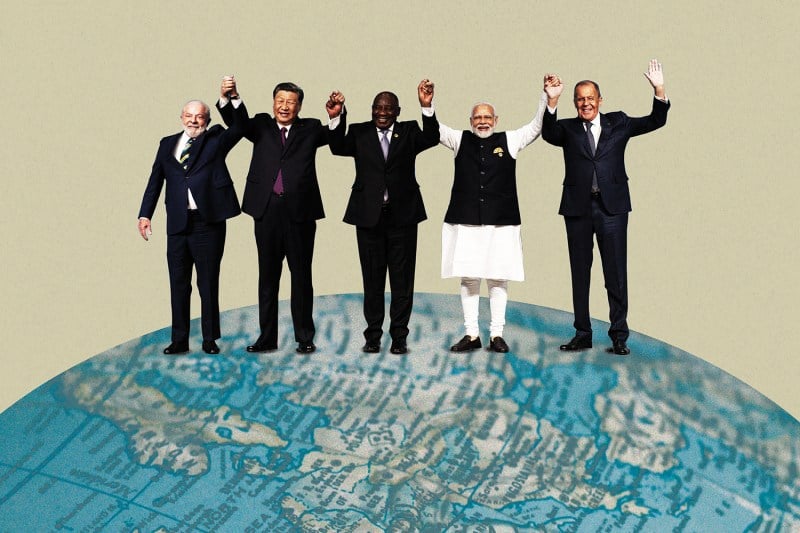
Can BRICS Finally Take On the West?
How an ad hoc gaggle of countries turned themselves into global revolutionaries and why it might yet matter for the West.
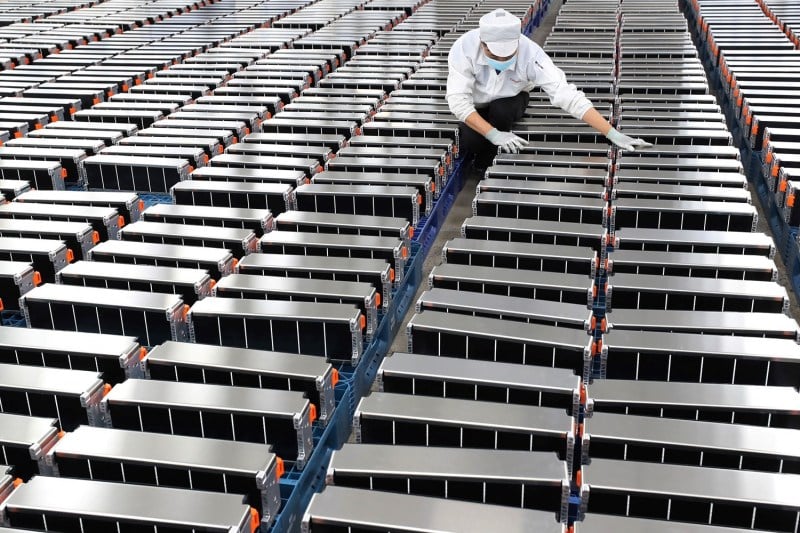
How the United States Can Win the Battery Race
To leapfrog China, Washington should shift away from lithium-ion batteries.
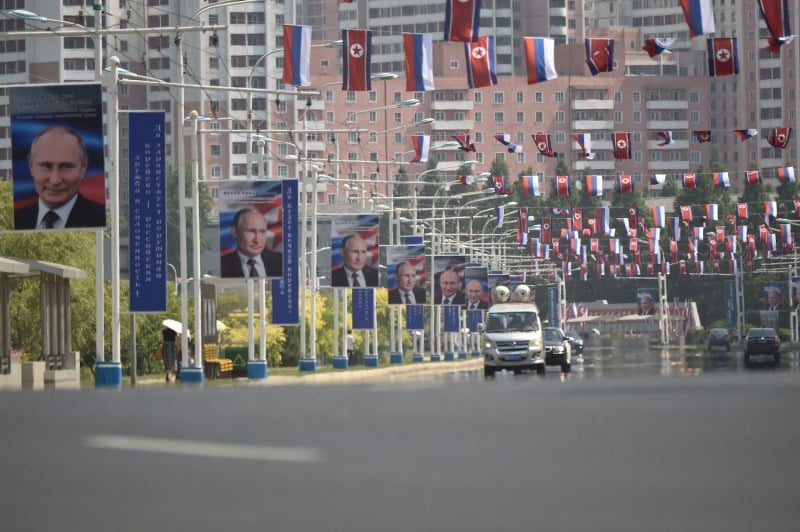
Why North Korea’s Deployment of Troops to Russia Really Matters
Questions abound about the combat quality of Pyongyang’s troops, but they could bail out Moscow and end up alarming Seoul.
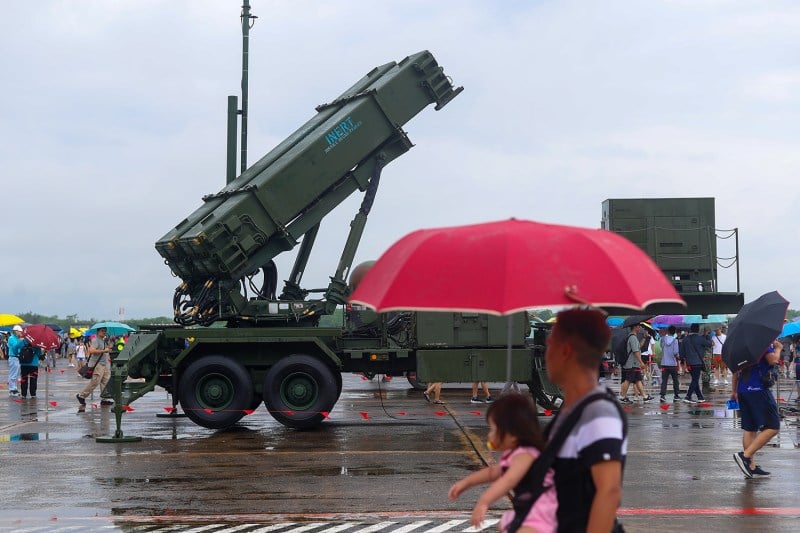
Taiwanese Missile Units Are Giving Away Their Positions to China
Taiwan’s military hasn’t adjusted to the age of open-source intelligence.
This post was originally published on here


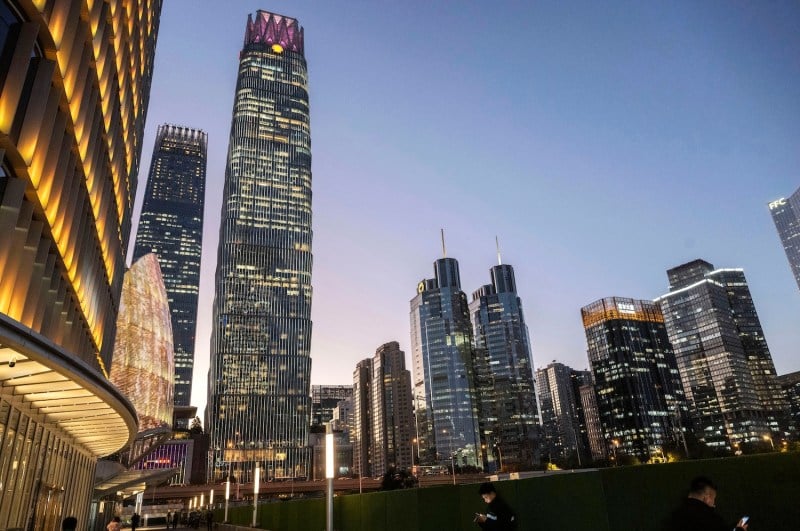






Join the Conversation
Commenting on this and other recent articles is just one benefit of a Foreign Policy subscription.
Already a subscriber?
.
Subscribe
Subscribe
View Comments
Join the Conversation
Join the conversation on this and other recent Foreign Policy articles when you subscribe now.
Subscribe
Subscribe
Not your account?
View Comments
Join the Conversation
Please follow our comment guidelines, stay on topic, and be civil, courteous, and respectful of others’ beliefs.
Change your username |
Log out